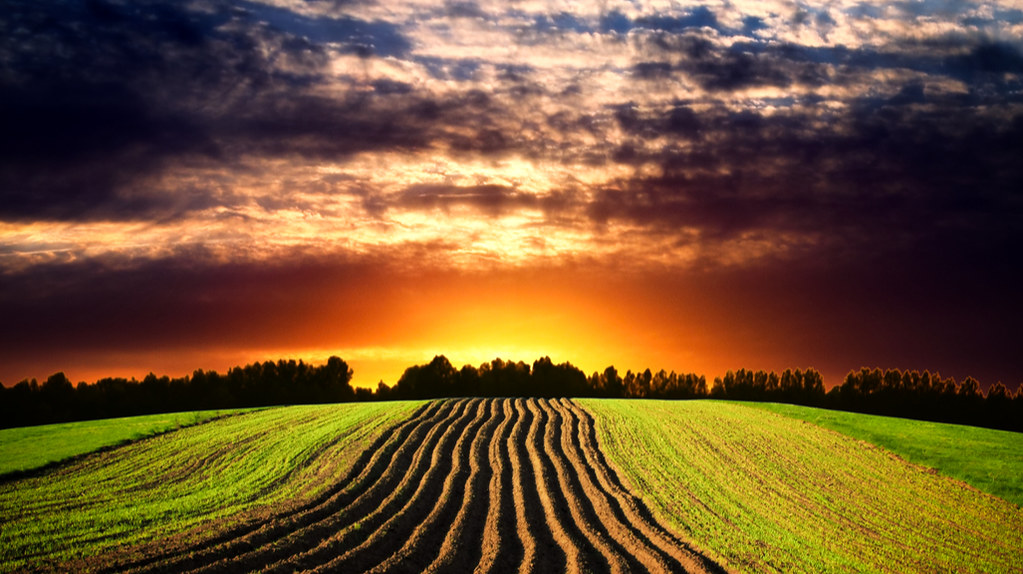An important series of events, organised by the Institute for Policy Research (IPR) at the University of Bath, launches in November, debating the changing nature of farming and food production in the UK in the context of Brexit and our climate crisis.
The series, ‘The Future is in Our Lands’, begins on Wednesday 6 November with a talk from Friends of the Earth CEO, Craig Bennett. Dubbed ‘one of the country’s top environmental campaigners’ and as a ‘model of a modern eco-general’, Bennett will explore doubling tree cover, restoring peat bogs and functioning eco-systems; as well as putting nature back into urban areas in response to the climate and ecological crisis.
The second event, on Tuesday 19 November, will look at the future of UK farming and food production in view of rapid environmental and technological shifts. Panellists will consider the changing nature of farming - from efforts to make farming net carbon zero, to the future role for organic producers and new technologically-enabled precision farming – in order to explore how we can continue to feed our population sustainably.
Speakers at the event include Patrick Holden (Chief Executive of the Sustainable Food Trust); Joanna Lewis (Policy and Strategy Director at the Soil Association); Jo Edwards (Owner and Farmer at Castle Farm Organics); and Jack Farmer (co-founder of LettUsGrow - the Bristol-based start-up designing aeroponic irrigation and control technology for indoor farms).
On Tuesday 11 February 2020, Professor Alistair Driver will deliver the third event considering the topic of rewilding – large-scale conservation efforts aimed at restoring and protecting natural processes and wilderness areas. Professor Driver, one of the UK’s leading rewilding experts, will discuss how rewilding works in practice and the benefits it can bring for the economy, the environment and wider society.
Amy Thompson, Head of Policy Programmes and Communications at the IPR, explained: “We are experiencing a climate crisis that is destroying our planet. We must make changes now to halt this spiral of destruction before the tipping point - the point of no return, is upon us. Amidst the tumultuousness of our climate crisis, here in the UK, we face a second unprecedented situation – Brexit. If the UK leaves the EU, one of the many significant changes will be the end of the EU-funded Common Agricultural Policy (CAP).
“Alongside this, the prevalent current practices of UK farming contribute to our carbon emissions – from methane production from livestock, through to the use of pesticides, herbicides and slurry production. Yet our agricultural industry has the unique opportunity to be transformed from a net carbon producer to a carbon sink, through, among other things, carbon sequestration, precision farming, or rewilding areas back to natural habitats. This ecological and sustainable shift will require changes in how farmers are incentivised, their farming processes and how they are financially rewarded.
“How we use and manage our land, the future of UK farming and how we can increase and protect the range of biodiversity in our eco-systems pose fundamental challenges which require collaboration between policymakers, the agriculture sector and the public. Through ‘The Future is in Our Lands’, we look forward to welcoming people to Bath to be part of these discussions.”
The three events include (click on the links to sign up to register):
- 6/11 - The future is in our lands: Craig Bennett (CEO of Friends of the Earth).
- 19/11 - The future of UK farming and food production: Patrick Holden (Founding Director and Chief Executive of the Sustainable Food Trust); Joanna Lewis (Policy and Strategy Director at the Soil Association); Jo Edwards (Owner and Farmer at Castle Farm Organics); Jack Farmer (Co-Founder of LettUs Grow).
- 11/02/2020 - Born to rewild!: Professor Alistair Driver (Rewilding Specialist).
For media wishing to attend / film and/or arrange interviews with speakers please contact Andy Dunne in the University press office via ajd65@bath.ac.uk / 01225-386319.

